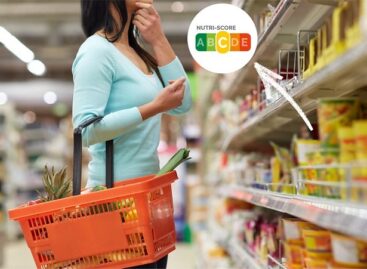Food Labels May Fool EU Consumers, New Report Warns
Consumers can easily get lost in a maze of food labels, EU auditors have warned.

A new report said food labelling should help people to make informed decisions when buying food, but European consumers are exposed to a growing number of claims, logos, slogans, labels and scores which can be not only confusing but also misleading.
The European Court of Auditors said while labels provide information about the content and properties of food, and EU rules ensure they provide consumers with basic information, a number of worrying gaps in the legislation had been found, as well as problems with checks and penalties.
“Instead of bringing clarity, food labels too often create confusion; there are hundreds of different schemes, logos and claims that people need to decipher”, said Keit Pentus-Rosimannus, the member of the European Court of Auditors responsible for the audit.
Unintentionally Misleading Messages
“Companies can be very creative in what they put on packaging, and EU rules have not caught up with a constantly evolving market, leaving some 450 million European consumers vulnerable to intentionally or unintentionally misleading messages.”
The report said “the fact is that weak EU legislation can lead to consumers being fooled”, such as when EU rules allow for the use of nutrition and health claims even for products that are high in fat, sugar and/or salt, meaning that sugary products, such as energy bars, may be advertised as ‘high in protein’.
Similarly, consumers are increasingly exposed to non-regulated health claims about plant substances or ‘botanicals’ – such as ‘contributes to energy recovery’ or ‘improves physical performance’ – even when this is not supported by scientific evidence.
Nutrition Labelling
“Some consumers may even feel aggrieved,” the report added. “People with food allergies may be faced with over-cautious allergen labelling and vague statements such as ‘may contain’.
“In practice, this restricts their choice of products. Vegetarians and vegans are particularly affected: the use of vegan and vegetarian labelling is not regulated, as there is no EU-wide definition of such products.”
Auditors said front-of-pack nutrition labelling such as Nutri-Score, the NutrInform Battery, and Keyhole are not harmonised at EU level, and no consensus exists among European stakeholders about which labelling system to use.
However, standardised rules could help consumers to identify healthier food options, and potentially prevent diet-related diseases. Instead, the co-existence of multiple schemes in EU countries – each with different meanings and purposes – has quite the opposite effect, i.e. confusing rather than guiding consumers.
Voluntary Labels
“The confusion is made worse by the increasing number of voluntary labels, logos and claims that are used to attract consumers,” the report continued.
“These include ‘clean’ labels about the absence of certain elements (e.g. ‘antibiotic-free’) and uncertified qualities (e.g. ‘fresh’ and ‘natural’), but also a wide range of environmental claims which are tantamount to greenwashing. Current EU rules are regrettably unable to prevent such practices.”
Notwithstanding these criticisms, the auditors found that educating consumers does not appear to be a priority.
The EU allocated only around €5.5 million to food-labelling awareness campaigns from 2021 to 2025, and consumer campaigns by member states are sporadic. For instance, date marking – although mandatory – is poorly understood, with consumers confused by the meaning and implications of ‘use by’ and ‘best before’.
ESM
Related news
High-value shopping basket and more conscious shoppers: growing demand for domestic and healthy products
🎧 Hallgasd a cikket: Lejátszás Szünet Folytatás Leállítás Nyelv: Auto…
Read more >Related news
Retail sales of organic products in Hungary increased by 13.9% – our country is the second fastest growing market in the European Union
🎧 Hallgasd a cikket: Lejátszás Szünet Folytatás Leállítás Nyelv: Auto…
Read more >







